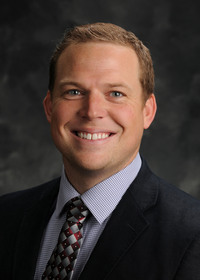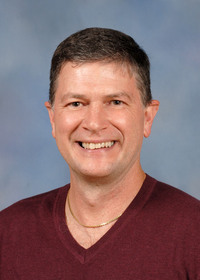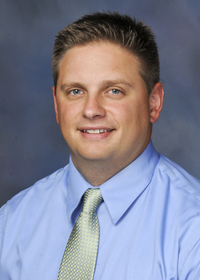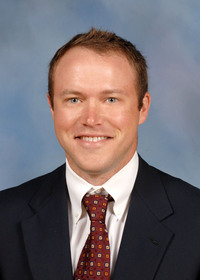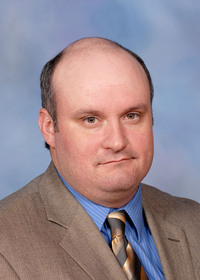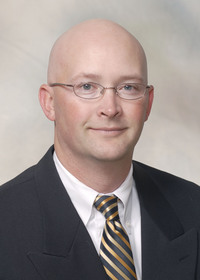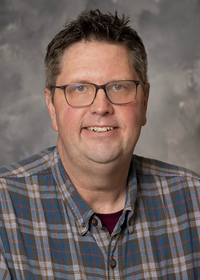Information Possibly Outdated
The information presented on this page was originally released on March 4, 2019. It may not be outdated, but please search our site for more current information. If you plan to quote or reference this information in a publication, please check with the Extension specialist or author before proceeding.
Clients share needs with MSU agents, specialists
RAYMOND, Miss. -- Central Mississippi agricultural producers and industry professionals met with Mississippi State University personnel to discuss research and education priorities at the 2019 Producer Advisory Council meeting on Feb. 20.
More than 120 participants gathered at the annual event aimed at helping clients improve their productivity. Attendees gathered in small commodity groups to share their ideas with agents, researchers and specialists with the MSU Extension Service and the Mississippi Agricultural and Forestry Experiment Station.
The meeting was a collaborative effort with longtime partners Alcorn State University and Hinds Community College.
“Your opinions and input are vital to driving our programs,” said Sherry Surrette, head of the Central Mississippi Research and Extension Center. “Research and service is what our university does as a land-grant institution, and we depend on you to help us determine our focus each year.”
Agriculture producers met with MSU Extension agents and Mississippi Agricultural and Forestry Experiment Station specialists on Feb. 20, 2019, to discuss research and educational priorities for 2019.
Budget cuts in recent years have hindered some requests, but Extension’s mission remains to educate the public with research-backed information.
“We will rebound,” said Gary Jackson, director of the MSU Extension Service. “I appreciate your willingness to share with us your needs and support us as we work to advance agriculture across the state.”
Reuben Moore, associate director of the Mississippi Agricultural and Forestry Experiment Station and interim associate vice president for the Division of Agriculture, Forestry and Veterinary Medicine, said funding is crucial for improvements that help researchers.
“The university faces additional challenges including the need for new and updated technology,” Moore said. “New educational and research facilities, including new meat, dairy and poultry science buildings on the Starkville campus, will further research, but funding dollars are important to keep the university on the cutting edge of technology.”
Eight commodities were represented during breakout sessions: bees; dairy; ornamentals; agricultural crops; forestry and wildlife; small ruminants and swine; beef, forages and equine; and vegetables, fruits and nuts.
Beekeepers asked for help creating curricula for junior high and high school students and developing a census to quantify beekeepers, colonies and production. They want more online and distance-learning opportunities, continued research on parasite control and other honeybee health issues, and strategies and small-business models for pollination service in conjunction with fruits, vegetables and nuts.
Dairy representatives want continued testing of dairy equipment on farms, mastitis work, and research oriented toward summer grazing. They also would like to see support for on-farm processing of milk, milk products and dairy beef.
Ornamental group members requested an advanced plant-identification class for Master Gardeners and research on production and health benefits of medicinal crops. They are interested in organizing a Junior Master Gardener program in the region and would like to offer incentives, such as scholarships, for school horticulture projects.
The agricultural crops group discussed markets and concerns about the lack of new chemistries for insect and weed control. They also want research on new, less expensive control methods for deer in soybeans. Members of the group said they would like for depredation permits to be easier to get and last longer.
Forestry and wildlife representatives said they want information on the economic impact of infrastructure and education for real estate agents and certified public accountants on forestry and wildlife topics. They requested the open regional forestry specialist position be filled with a general forest management specialist. The group also asked for state specialist positions for taxation, accounting, urban forestry, and youth education.
Members of the small ruminants and swine group would like help developing more markets. They also noted that obtaining supplies can be difficult for some producers.
The beef, equine and forages group said they would like information and Extension programming on vaccine protocols, information on regulations for storing fresh and composted poultry litter, and continued research on alfafa and inter-seedling legumes on Bermuda and Bahiagrass pastures. They also want increased funding for grazing, forage and cover crop research.
Representatives with the fruits, vegetables and nuts group asked for a state Extension vegetable specialist and applied vegetable researcher. They also requested Extension resources on food safety, plasticulture and fertigation for vegetable production, comprehensive guides for home fruit production, and information on how to get started in commercial fruit and vegetable production. They would like trainings on pesticide use and worker protection standards, research and recommendations for biopesticide and low-input solutions, and grower association partnerships for trials and research. The group also said they see a need for hemp production advocacy and revisions to the cottage industry food safety rules to help increase sales.




